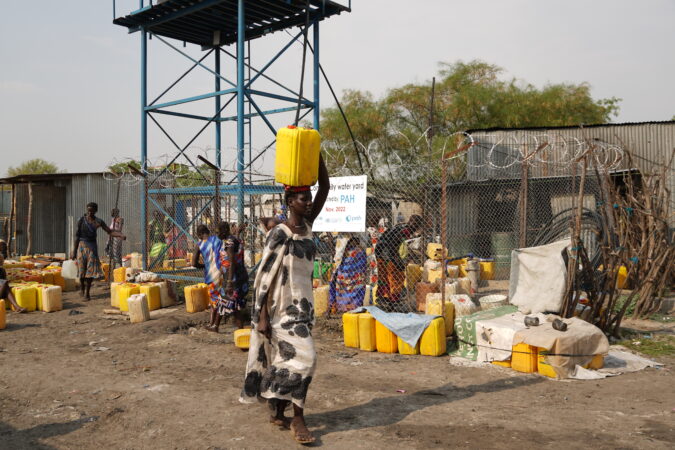The situation in the country is very unstable. There is a shortage of basic services, and the natural disasters, such as severe floods, affect its people every year. It is estimated that almost three-fourthsof South Sudan’s population need assistance. Many are forced to move to other parts of the country or beyond its borders in search of safe shelter, food and water. Today, 2 million people are internally displaced, and 2.29 million people are hosted in other countries as refugees.
Conflict, forced displacement, floods and outbreaks which South Sudan is experiencing are hampering food production. The country is experiencing critical levels of malnutrition and severe food insecurity which is a problem for 7.1 million people. A staggering 1.5 million children are acutely malnourished. It is estimated that in 2025. 2 million children will experience acute malnutrition.
Floods have destroyed water and sanitation infrastructure – access to clean water and toilets is very difficult. Such conditions increase the risk of waterborne disease outbreaks.






